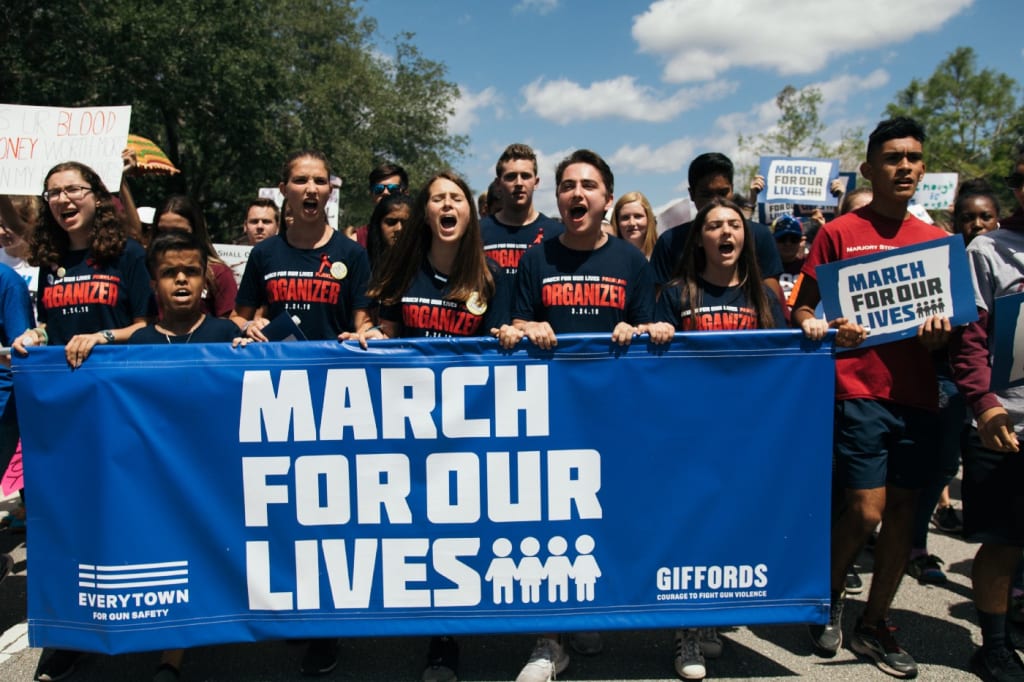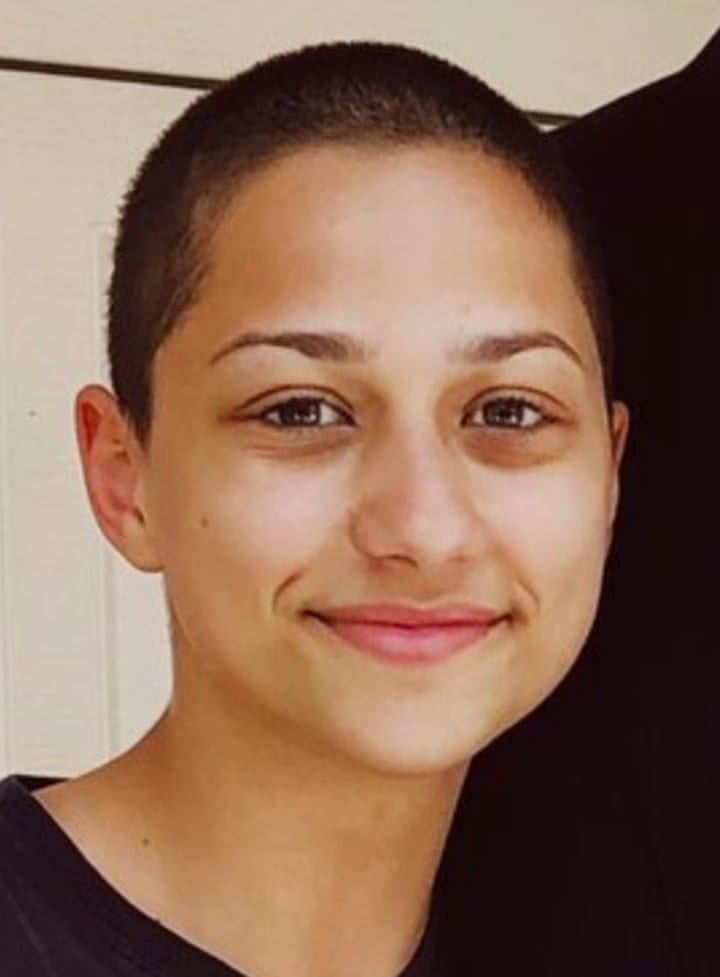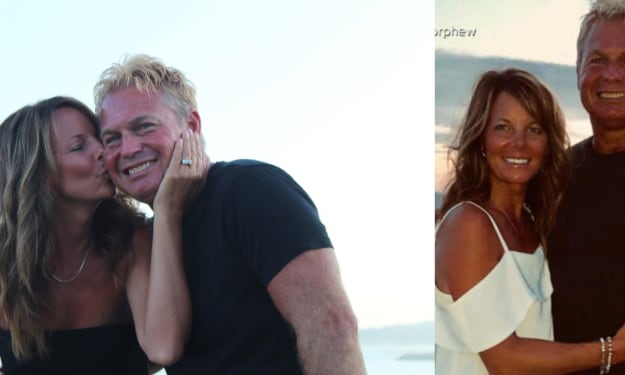Parkland Students Turned Trauma into Gun-Safety Laws
School shooter must not face death penalty, jury decides

A Florida jury decided Oct. 13 that Nickolas Cruz, who pleaded guilty to murdering 17 people and attempting to murder 17 others at Marjory Stoneman Douglas High School, should not be put to death.
Victims and their families were outraged, saying it is unfair that his troubled upbringing and mental illness spared him the consequences of the slaughter of their loved ones on Valentine's Day, 2018. They have every right to feel that way.
However, in the wake of that tragedy some of the student-survivors also made clear that we all bear some responsibility for mass shootings because of weak gun laws, limited mental-health services, and lax school-safety measures.
Their activism gave birth to March for Our Lives, a now international organization whose successful push for new gun laws in Florida helped lay the groundwork for significant, bipartisan legislation Congress passed in June.
The students got into the face of the nation, displaying pain, fear and indignation. They organized school walkouts and “die-ins,” sat for interviews, and testified at government hearings. To well-worn excuses against gun control, they responded: “We call B.S.” For years, they have weathered backlash, slander and condemnation as “crisis actors.”
Less than a month after the massacre, the Florida legislature passed the Marjory Stoneman Douglas High School Public Safety Act. It raised the minimum age for buying firearms to 21, established waiting periods and background checks, provided a program for arming some teachers and hiring of school police, and kept some mentally unhealthy people from possessing guns.
During the bill signing, Gov. Rick Scott praised the students: “You made your voices heard. You didn’t let up and you fought until there was change.”
Later that month, the group led a massive march in Washington, D,C., along with more than 880 related events around the world. One of the more powerful moments was when cofounder Emma González stood silent, but emotional, at the microphone for six minutes — the length of time for the massacre.
González, who now uses X as a first name, recently graduated from college. In an interview with The Atlantic, the activist talked about the challenges of dealing with PTSD from the shooting and the frustration of activism.

González spoke during the June D.C. rally, which occurred in the wake of two tragedies the month before: the shooting of 19 children and two teachers at a Texas elementary school and a racist attack that killed 10 people at a Buffalo, N.Y. supermarket. In the Atlantic, the activist said:
“It’s frustrating to see people only reach out and care about things when it happens in school and to children. ‘This is especially heinous!’ Well, it’s equally heinous when it happens in a synagogue. It’s equally heinous when it happens in a Walmart. It’s equally heinous when it happens to one person on the street.”
The Bipartisan Safer Communities Act, signed into law by President Biden in July, “is definitely a start” in addressing gun violence, González said. It expands background checks for buyers under the age of 21, gives states funds for mental-health and drug courts, and helps courts to temporarily confiscate guns from dangerous people. Also, it strengthens laws against straw purchasing and trafficking and closes a loophole that allowed some domestic abusers to keep their weapons.
The law does not include universal background checks or an assault-weapons ban — priorities of most gun-control groups. But David Hogg, a March for Our Lives co-founder, said the law is progress. “It’s not the final step, but it’s a good first step,” he said in a Time magazine inerview.
Now a senior at Harvard University, Hogg said he has become more practical about how to encourage change, and is reaching out to gun owners, veterans and National Rifle Association members. He said he has studied conservative movements, finding them primarily disciplined, proactive and goal-oriented:
“Liberals are organized the way that a bunch of six-year olds doing a group project together with a bunch of crayons are. Conservatives are organized like SEAL Team Six.”
In an op-ed on FoxNews.com promoting his group’s 450 June rallies, Hogg appealed to those who “can agree that killing children is unacceptable …We can follow the model we used to for cigarettes: address the pressures that make someone want them, and then understand how they get them.”
Hogg’s focus on the practical has not diminished his passion. He interrupted a July House Judiciary Committee hearing on an assault-weapons ban. GOP Rep. Andy Biggs of Arizona said people should be armed because of an “invasion” from Mexico.
“You’re reiterating the points of mass shooters in their manifestos,” he shouted while standing and then walking out of the room. “The shooter in my high school: anti-Semitic, anti-black and racist. … “Guess what? Those guns are coming from the United States of America, they aren’t coming from Mexico.”
Five years after the Parkland school shooting, these young activists remain unafraid to confront the powerful and challenge the country. We still need it.
About the Creator
Vanessa Gallman
Commentator on political events, explorer of human nature






Comments
There are no comments for this story
Be the first to respond and start the conversation.